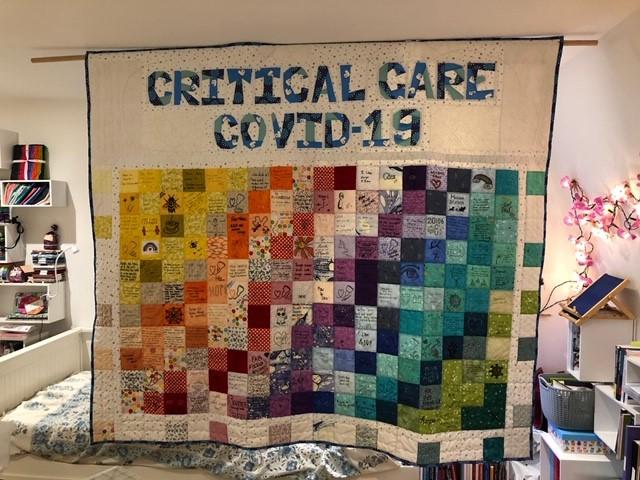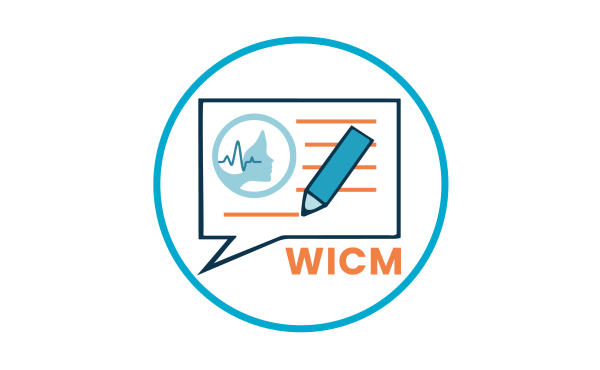WICM: Inspiring Careers in Critical Care – Dr Caroline Lacey
Introduction from the interviewer:
My time working in Intensive Care as an ACCS-EM trainee was one of the most influential periods of my career so far. I worked with a truly incredible team. During the lockdown period, I was able to reflect on my time in Intensive Care and my role as a woman in medicine. As part of this, I approached eight women in the Intensive Care team to share their inspiration and their perspective. It was a privilege to hear their stories. Thank you to WICM for this platform and to the women you will read about, for their time and their words.
Dr Jasmine Medhora

Intensive Care Medicine Registrar.
You did a degree prior to studying Medicine. What made you choose Medicine and how do you think your first degree and job contribute to your current job?
I always wanted to do Medicine, but my grades weren’t great. So, for 10 years I thought I wasn’t good enough to even apply! Instead I did a degree in Applied Science and Forensic Measurement and then a Masters in Radiation and Environmental Protection. I went on to work for 6 years as a safety advisor in the nuclear industry. I then decided to apply for Medicine and got a place at the University of Aberdeen Medical School. The transition was difficult as I was used to having a job and earning money. There I was, a 28-year-old student with no salary! My attitude towards medical school was ‘this is my job’, as opposed to being very social and involved in extra activities like I was during my first degree. So, I guess I brought professionalism and communication from my previous job. I think my interest in safety and in human factors still contributes to my work now.
You have trained in EM and ICM, how do you think the specialties complement each other?
There is an overlap between the care that goes on in the Resus area of the Emergency Department and the Intensive Care Unit. The training in Intensive Care Medicine makes you more comfortable working as a doctor in Resus. So, they do go well together.
The two places I have felt most at home in the hospital are Intensive Care and the Emergency Department because there are these big supportive teams and you know everyone has your back.
What do you enjoy about ICM?
Prior to my ACCS training I had had no real experience of Intensive Care. I had a half a day in the unit as a Year 4 student. When I was a foundation doctor in surgery, it was always the consultant and registrar who would go to ICU and do the surgical ward round. ICU just seemed like this hidden place in the hospital where there were lots of clever people. And then I did ACCS and experienced it for myself!
One of the big things for me is the time we have for communication and being able to help families through the difficult time they are having whilst a loved one is with us. It is about the teamwork involved in this process and being able to really talk to families.
You have done a lot of work in our EM and ICM departments on staff wellbeing. Do you think this is becoming more of an important issue? Do you think your previous experience outside of Medicine gives you more insight?
Yes, I think wellbeing is becoming more and more important in Medicine and I do think working in a different industry and coming to the NHS helps.
I think we need to make staff wellbeing a central value. After something like a pandemic, there is increased risk of burnout of staff. Healthcare organisations should put staff first and then the staff will keep patients safe. This is an attitude that comes from my previous job, and I want to hold onto this value throughout my career.
I used to get it wrong and thought everything was about work. Following some ups and downs I realised that you need to bring your best self to work, so you can be there for your patients. Paying attention to wellbeing gives you longevity. Resilience can be built, but it can also be destroyed. We need to get the balance right.
There are a similar number of female and male trainees on your ICM team. What impact do you think this has for training?
Fewer female consultants in Intensive Care means fewer female role models for women, so it is nice to see a 50:50 balance of male to female trainees in this team. When I was an ST2 in ICM, there were no female ICM registrars on the team. I hope now more women are inspired when they see the number of female trainees in our department.
Did you find the process for starting less than full time training straightforward? Do you have any advice for other trainees considering this?
Less Than Full Time is archaic phrasing, because the hours you work (when 80%) are normal average UK working hours. So, taking this option is not admitting defeat! Once I knew LTFT was an option, I felt an immense sense of relief and I knew it was the right thing to do. For me the application process was fine, and I liaised with my Training Programme Director for this. Occupational Health was also supportive, so there were no barriers really.
If you are considering LTFT, have conversations with your TPD and Associate Postgraduate Dean early on. Remember that is exactly what the people in those roles are there for.
What reflections from the pandemic situation will you take forward with you?
I was asked to be a team leader for one of our Intensive Care medical teams during the pandemic. I found this idea daunting and decided to read Brené Brown’s ‘Dare to Lead’, which made me think about how to be a fair leader. I would never have volunteered to be a team leader, nor would I describe myself as a leader but this experience during the pandemic made me recognise that I could lead.
The lockdown situation has also reiterated for me the importance of balance. It can be easy for work to become all-consuming. You still need to do the things that recharge you. I have learned to work with my qualities and skills rather than pretending there are parts of me that do not exist. For example, I can be a good doctor and also a quilter!

Related Content
Written by: Jasmine Medhora & Roxy Bloomfield
Written by: Jasmine Medhora & Laura Allan
Written by: Jasmine Medhora & Deborah Owen

